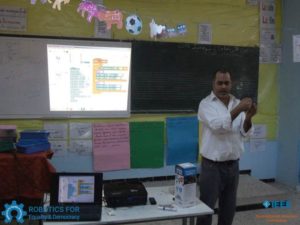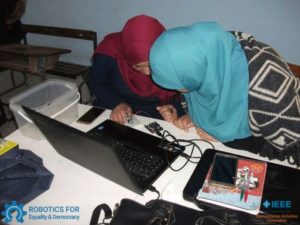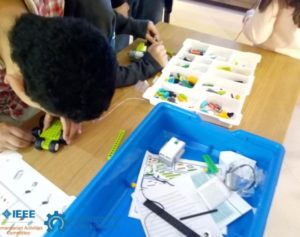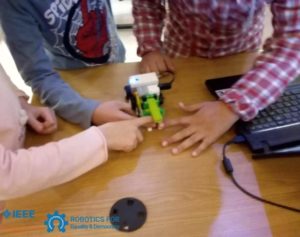The “Robotics for Equality & Democracy” program is really designed as a series of workshops organized by the RAS Tunisia Chapter that began in November of 2018 and continues through February of 2019 .

The team was motivated to organize the workshops due to their identifying certain regions of the country that have received an unequal share of the development process, especially when considering the educational system. The goal was to promote access to robotics in Tunisia rural schools in underdeveloped regions, and give young students the chance to be introduced to the field. The team felt that using robotics and ICT tools as an educational support would decrease the regional gap and move towards democracy and equality, making it a key component for obtaining social peace in Tunisia. RAS Tunisia is very active in promoting Robotics as an educational tool, and hoped to expand their activities to more rural areas of the country through a partnership with HAC.
The program includes several training sessions for educators so that they can share educational robotics activities with their pupils, a robotics challenge, robotic activities based on low-cost platforms like Arduino; teaching children how to compete and get certified, developing kids’ technical
skills and teaching them the efficient use of technology, and training students on how to design a robot using software platforms followed by how to apply the design to prototype their own drive Robot.



